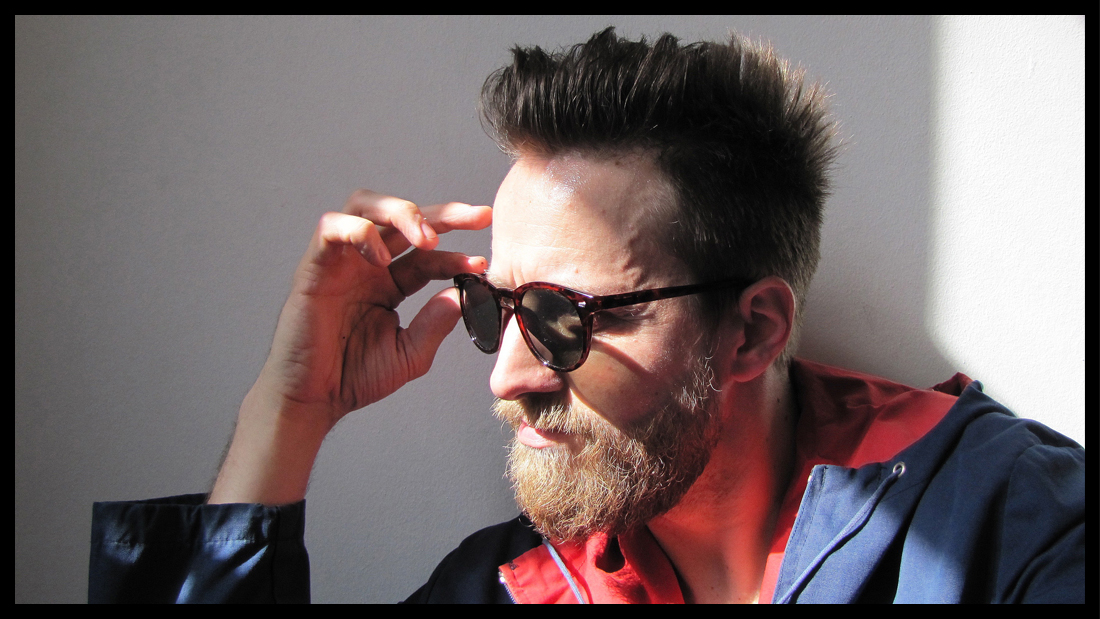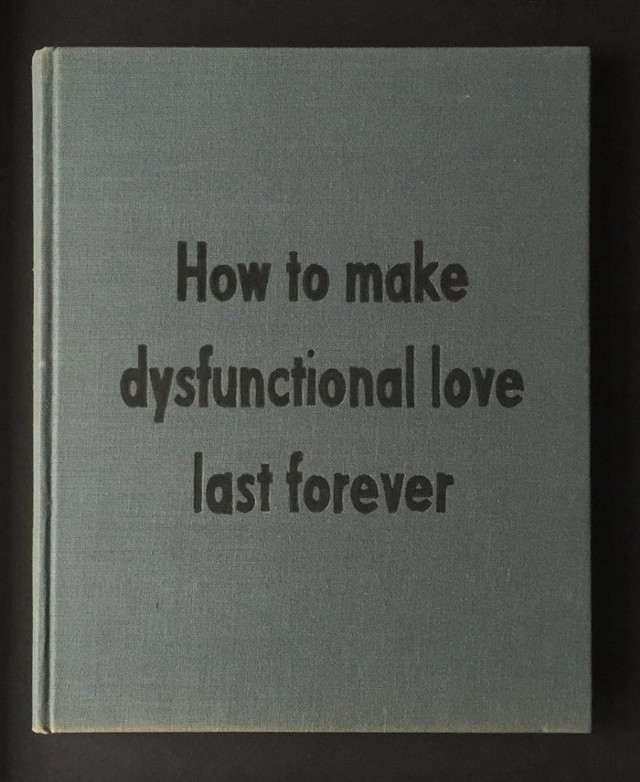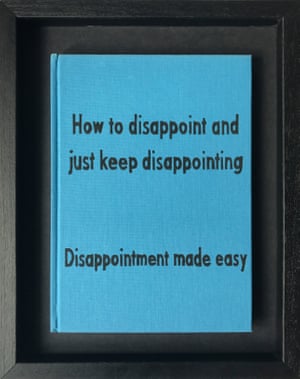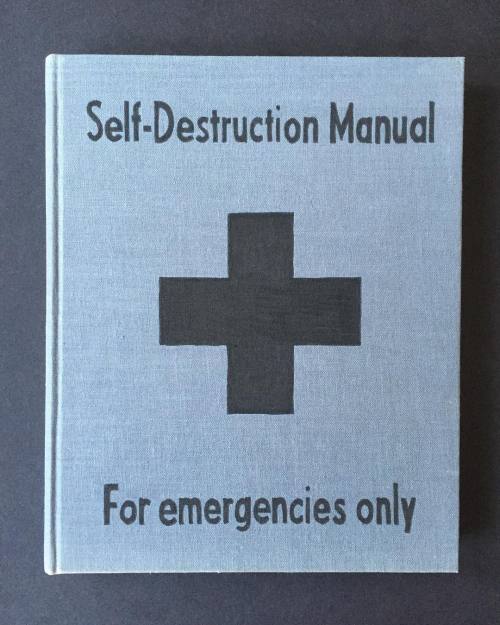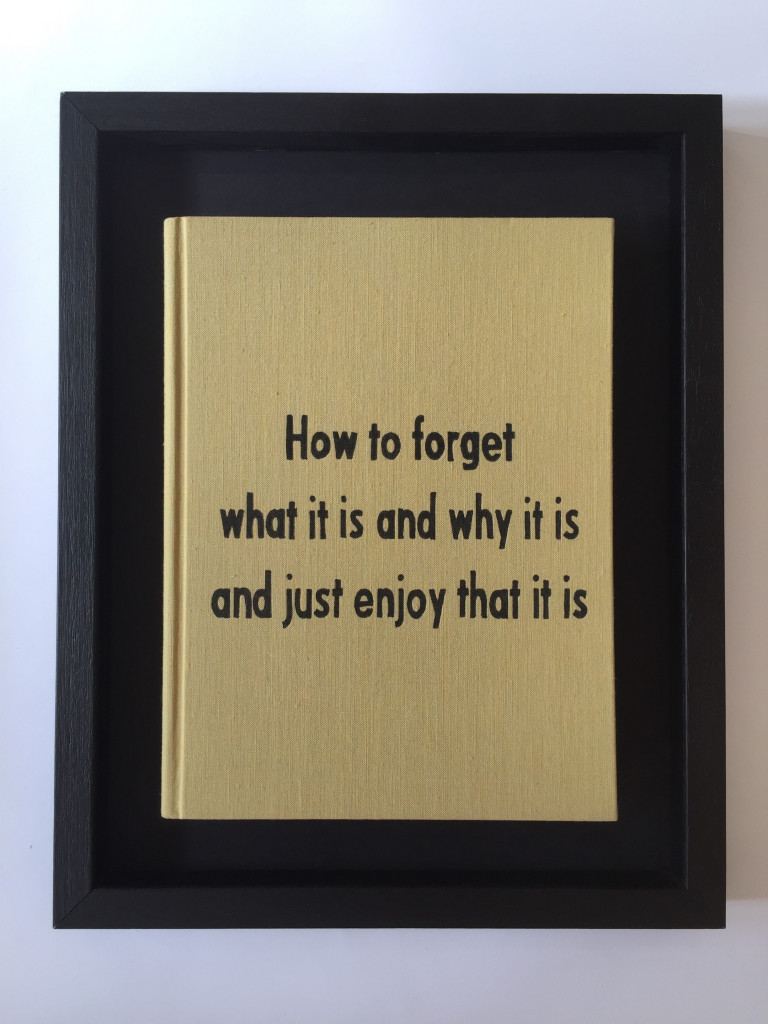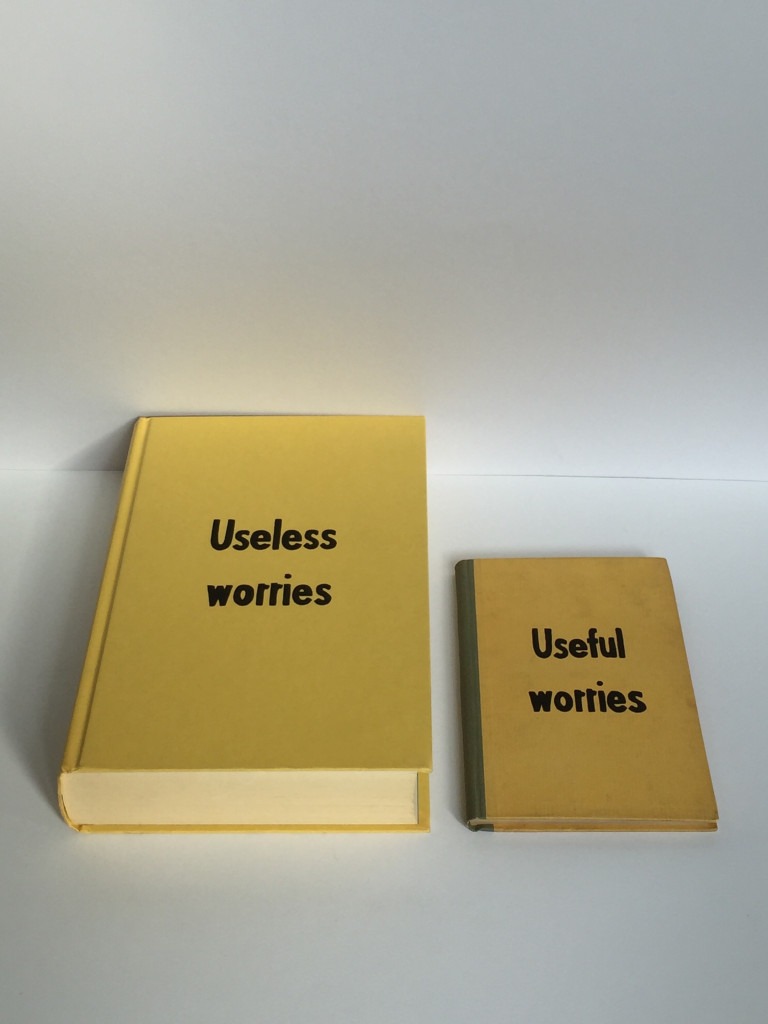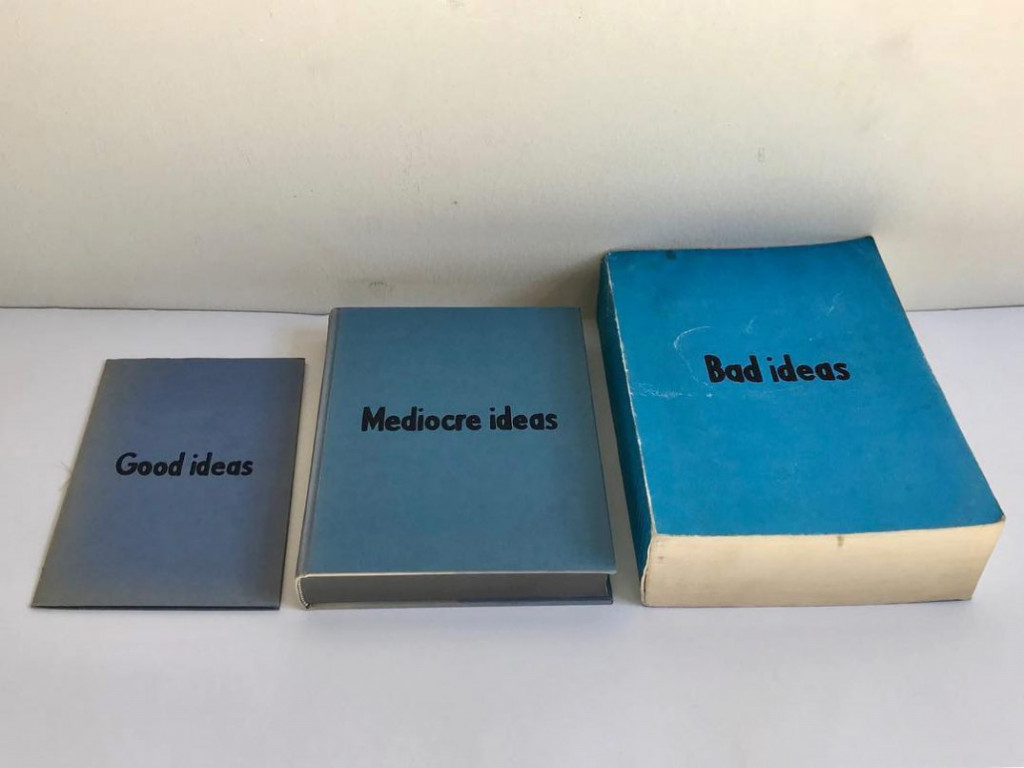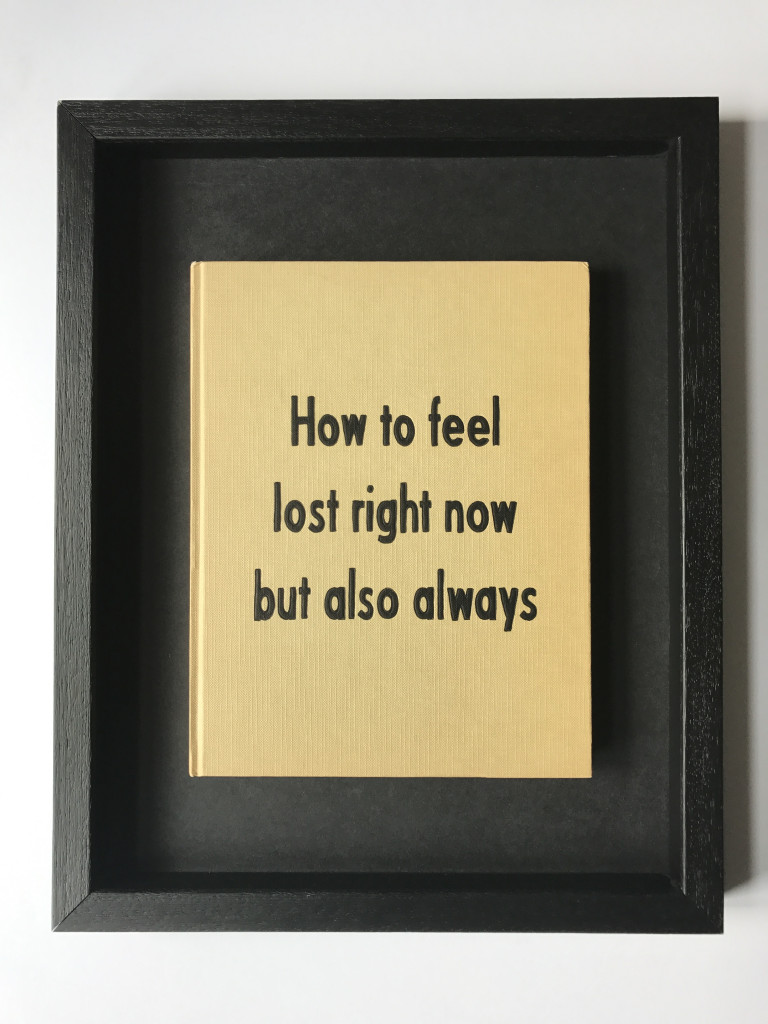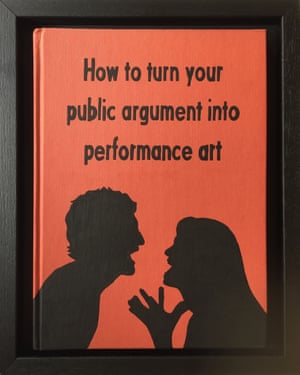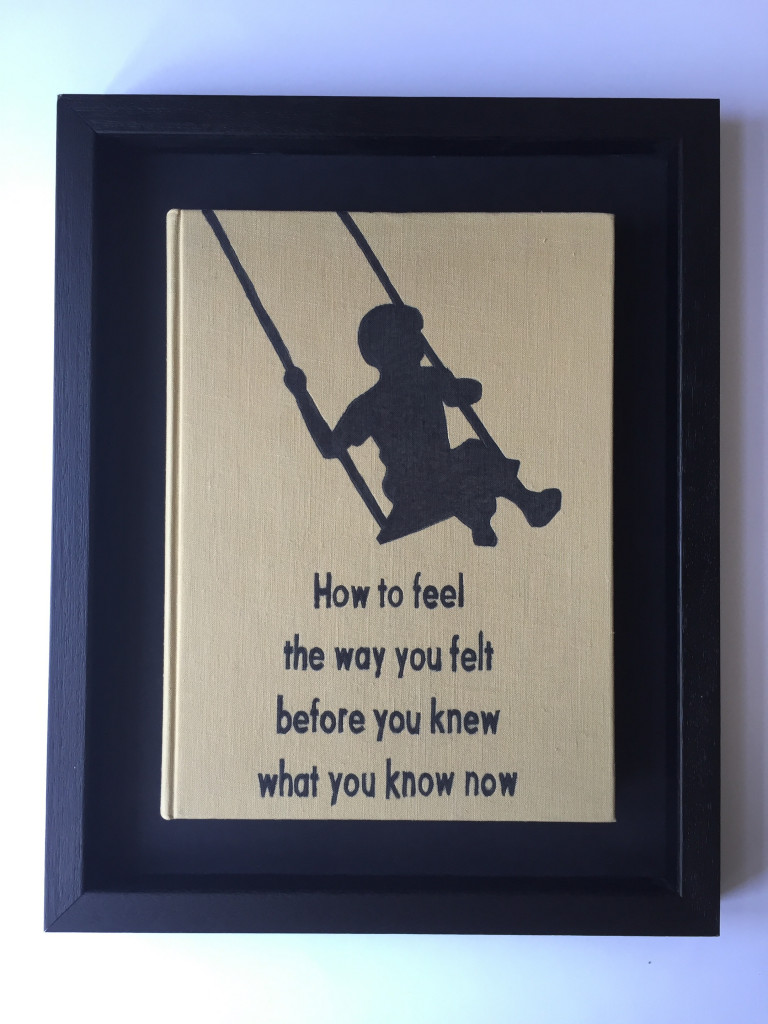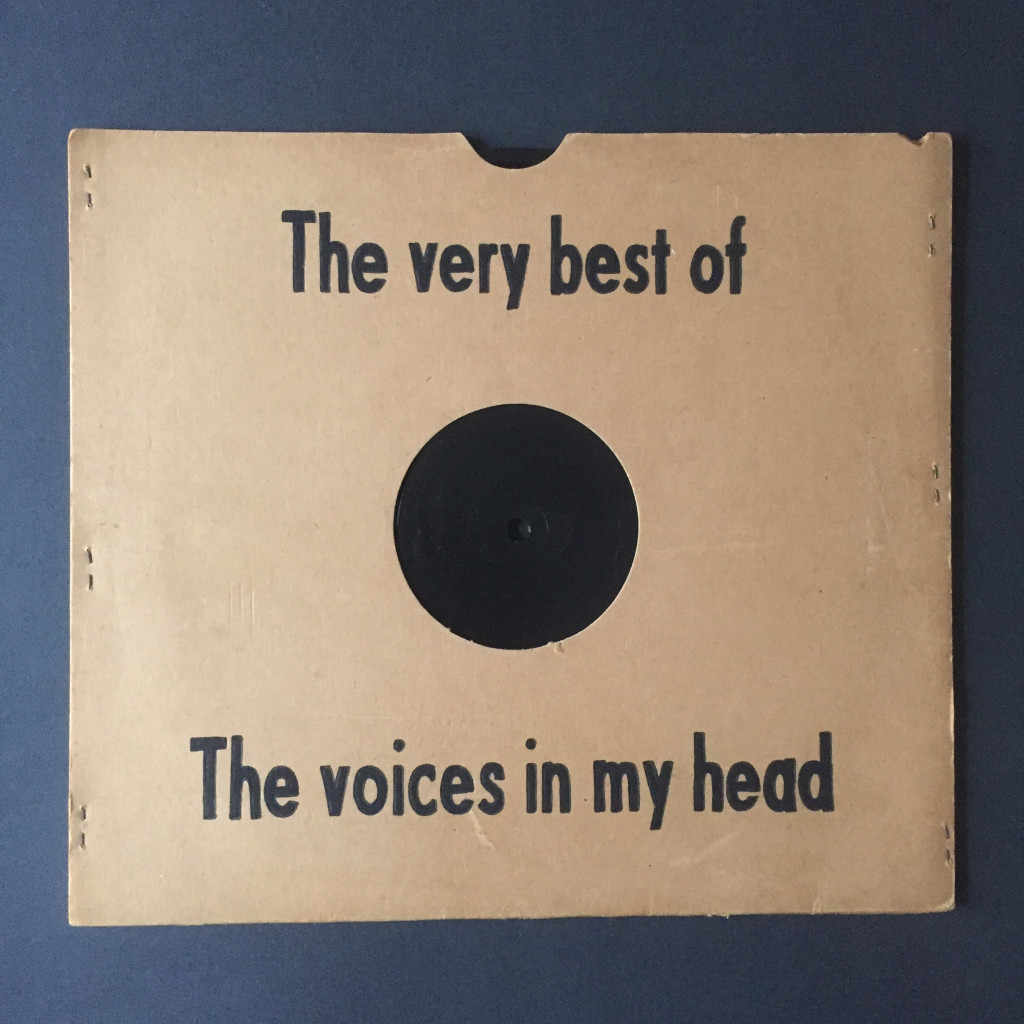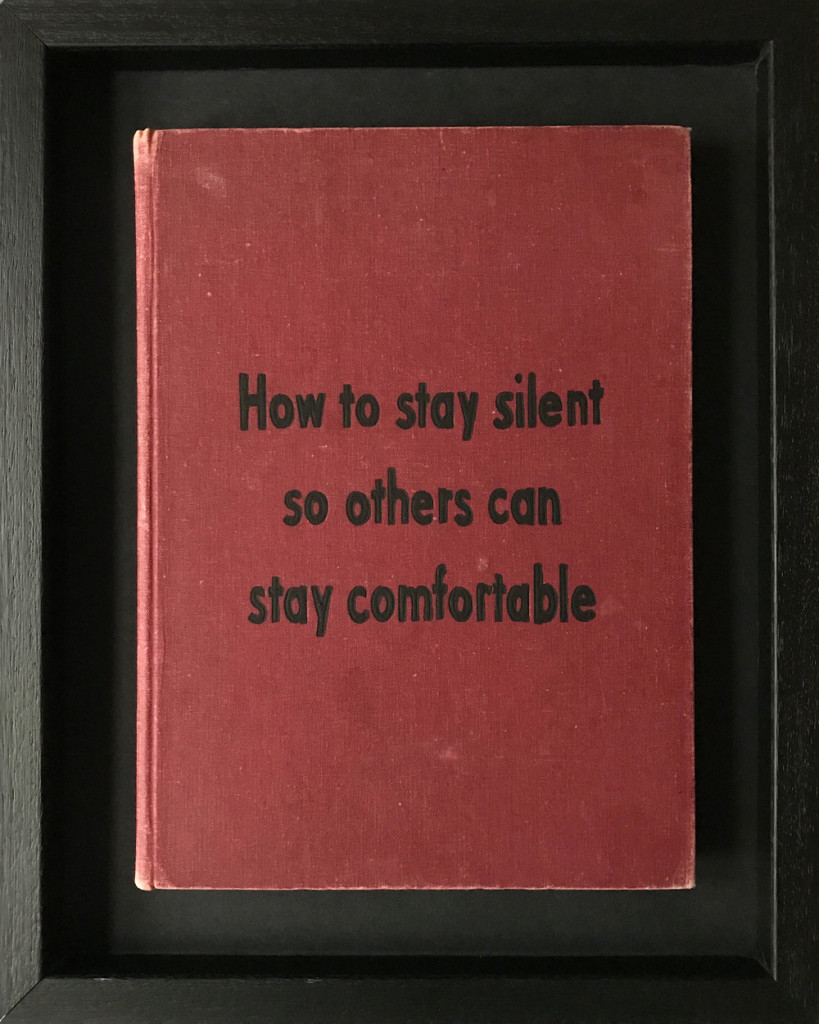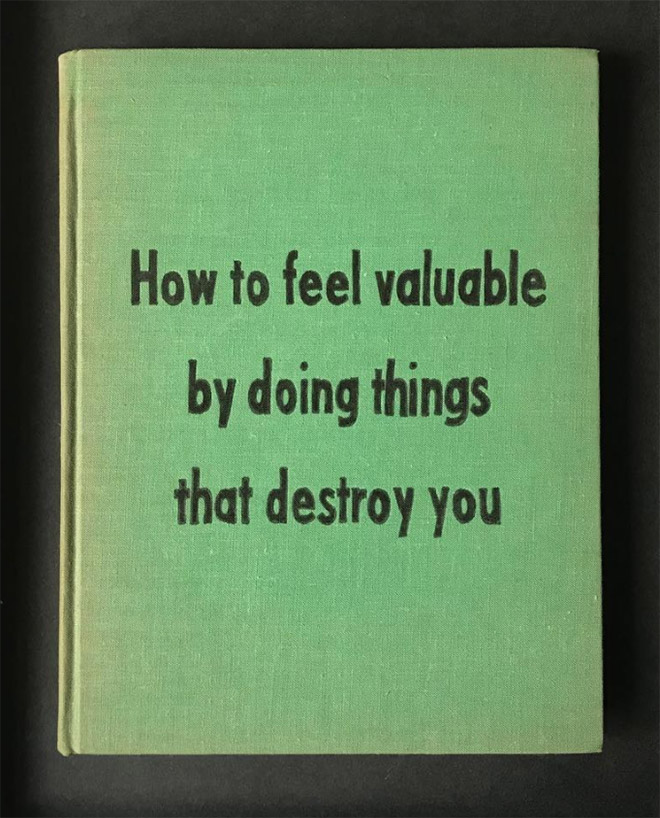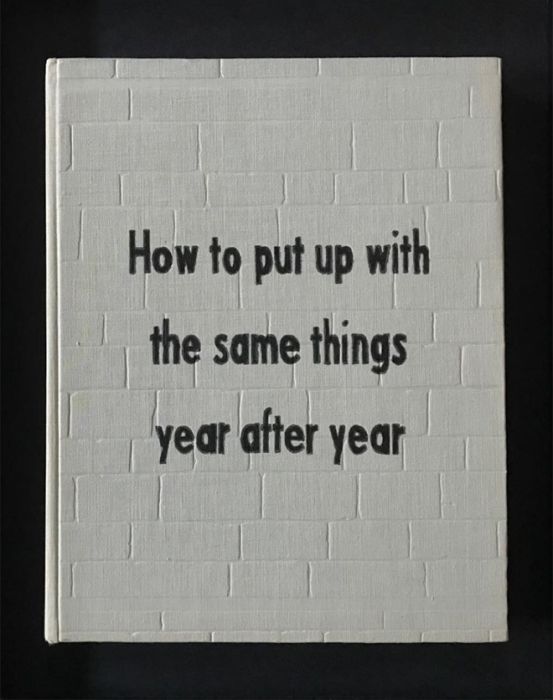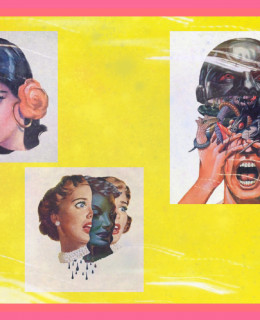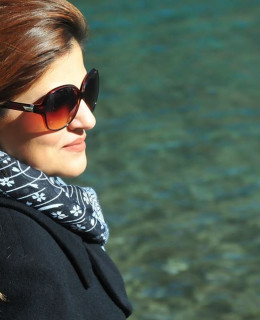The goal of the artist is to convey human vulnerability as something of visual value. It is to allow people to see themselves in their honesty and not their masks, and in doing so the artwork provides a sense of ease and relief because it reminds us that our insecurities are not alone.
Today we will be speaking to the artist, Johan Deckmann. His most popular work is a collection of witty and satirical self-help book covers. The collections have made their way in galleries and exhibitions all around Europe and America.
The Interview:
Tell us something about your background?
I’m an educated psychotherapist but I’m spending more and more time on my art. I’ve been working with paintings and sculptures since the late 90’s but I first reached a wider audience in 2014 with my book series.
How did it all start, your creative and honest book covers?
The idea of making text based art in the form of books with interpretation friendly psychological messages originates from my experience as a psychotherapist and as a lyricist and music composer. I like the idea of a psychological interaction or awareness that not only reaches a single person but can benefit all who are open to it and I think that art is a good place for this, because people already have their parades down and are receptive to new inputs. However, I do not have an agenda for my audience. Everyone creates their own impression and their own relation to my works.
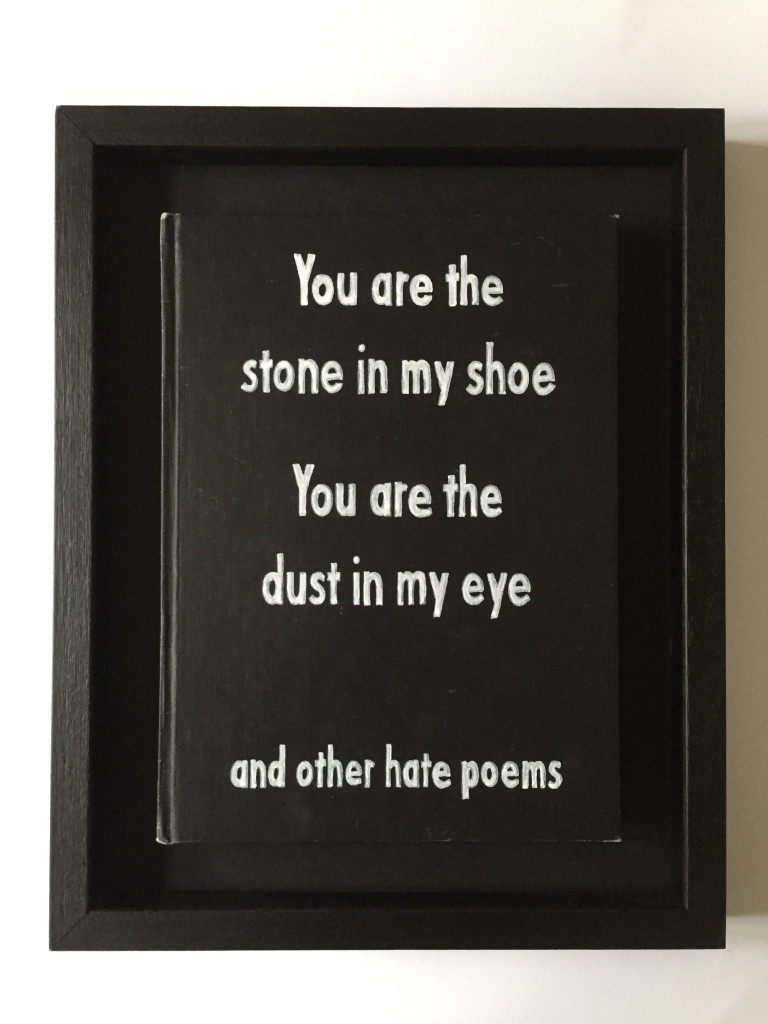
Before we take a deeper look at your work, tell us, what artists inspire you?
I am deeply fascinated by Louise Bourgeois. Some other artists whom I admire are Robert Rauschenberg, Georges Mathieu, John Alcorn and Marcel Broodthaers.
What kind of music do you listen to?
I admire and listen to the genius of Lennon/McCartney and other great songwriters of the 60’s and 70’s. Of contemporary melodic rock bands I would like to mention Fleet Foxes and Midlake. When I work I usually listen to instrumental music like jazz (Miles Davis, Ornette Coleman) and electronic music like Air and Mndsgn.
What kind of books do you read?
I mostly study psychological books like Frederick S. Perls and Irvin D. Yalom but I also like to read authors like Dostoyevski, Stefan Zweig, Paul Auster, Henry Miller, Hermann Hesse and the beat poets.
Out of all them (Covers) which is your favorite?
My favorites so far must be the wall piece “The Way You Felt” and the diptych piece “Worries”.
How would you describe your work to a stranger?
I try to distill my words so the meaning is most obvious. However, the meaning of my works is not given in advance. My works is not autobiographical – but they might be for you. In fact, I would rather avoid describing my works. I think that either you will experience my works or you should spend time on something that makes more sense to you.
Do you think one day these might become actual books? Because I’m sure many people would want to read them.
My works are in the present and I make only one half of the work – the other half of the work is done in your head.
The concepts are complicated but the cover design is very simple, why is that?
Whether the concepts are complicated or not must be up to the viewer. I try to avoid everything redundant, from colors, textures and illustrations because I believe that the words most often can and should stand alone.
Do you plan on working with other mediums or are you happy with this for now?
I’m currently working on a larger series of paintings – both on canvas and sackcloth. I also work with sculptures.
Why is art important for any society?
I think art in its own way is one of the last things we have left of childhood. Art is not necessary for physical survival but perhaps for mental survival, just like playing was in our childhood. It teaches us where we come from and show us who we might be. At the same time art is an intimate projection of a single person who choose to share themselves with the world. I think that’s a beautiful thing.
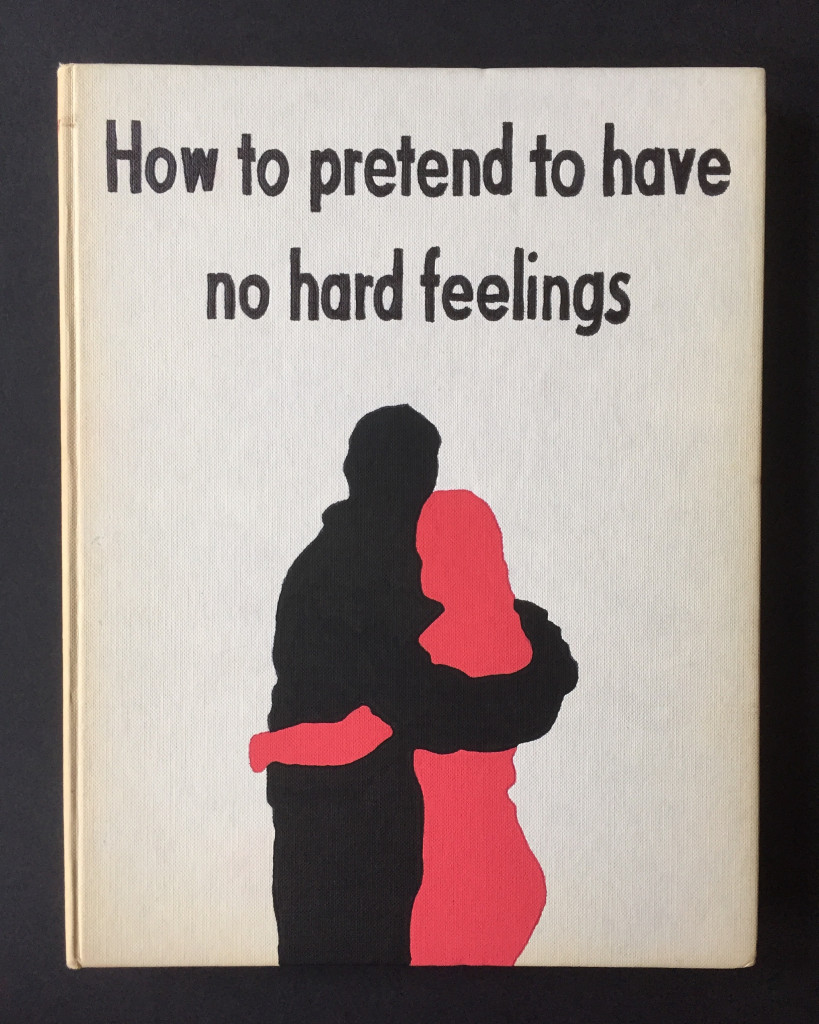
How can one be ‘Really passionate about not caring’?
Perhaps by avoiding ever giving your heart to anyone in fear that it would break.
This is our last question and thank you for being with us today, what will you do in the future?
I’m looking forward to exhibit my works in New York City.
To see more of his work follow the artist on Instagram:
@johandeckmann

Maheen Ahmed — Trying to make culture
@lahore_la_notte

